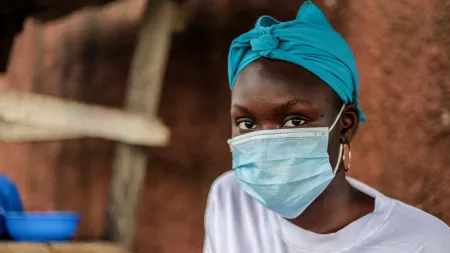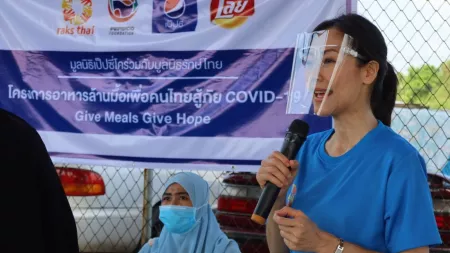How CARE International is responding to COVID-19
For communities already facing extreme poverty, conflict and the impact of the climate crisis, the COVID-19 pandemic has had devastating consequences.
CARE International has adapted many existing programs and humanitarian responses to fit COVID-19, and in ways that keep our partners, program participants, and staff safe.
In March 2020, most of our response was directed to water, handwashing, and community hygiene messaging. Now, we have expanded our approach to ensure improved access to health care, while also responding to food and hunger crises exacerbated by the pandemic and measures used to control it. In particular, almost 90% of our COVID-19 responses are focused on addressing the ‘shadow pandemic’ of gender-based violence.
In places where healthcare systems are unstable and limited, COVID-19 prevention measures, such as handwashing, are lifesaving. For this reason, we provide training for health workers and distribute drinking water and food that can be stored in stock, as well as medication, disinfectants, and medical protective equipment.
We have also significantly expanded our cash and voucher programming. At the beginning of the COVID-19 pandemic, only 17 CARE offices were doing cash-based response, compared to 41 countries now. This has given more than 890,000 people the choice and freedom to purchase what they most need, from medications to educational support for their children.
How has CARE International’s work adapted in response to COVID-19?
We are adapting more programs. By the end of March 2020, 31 CARE Country Offices had started adapting their programs to COVID-19’s realities. As of June 2021, 69 countries had adapted some or all of their work to respond to the crisis.
We are better informed—especially about gender. In March 2020, we had yet to complete a Rapid Gender Analysis. As of January 2022, we had finalized and published 28, we are collecting data in 59 countries, 54 of which has disaggregated data for women specifically. As part of our RGAs, we have so far spoken to more than 6,500 people about what they need.


